MCQ ON MOLECULAR DIAGNOSIS class 12 for NEET | MOLECULAR DIAGNOSIS class 12 | MCQ MOLECULAR DIAGNOSIS with Answer | Check the below NCERT MCQ question for class 12 Biology based on the with Answers.
MCQ on MOLECULAR DIAGNOSIS class 12 Biology with answers were prepared based on the latest pattern.We have provided class 12 Biology MCQs question with Answers to help students understand the concept very well.
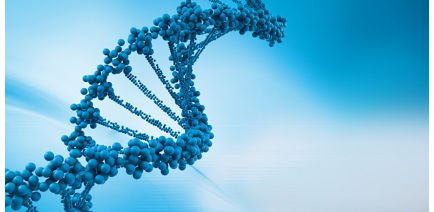
MCQ ON MOLECULAR DIAGNOSIS class 12 for NEET
MCQ ON MOLECULAR DIAGNOSIS is useful for NEET / CSIR / UGC / CBSE / ICSE / AIIMS / EXAM / AFMC EXAM / STATE LEVEL MEDICAL EXAM/ KVS PGT BIOLOGY / NVS PGT BIOLOGY EXAM 2022-23 , 2023-24
INTRODUCTION:-
Molecular diagnosis:
You know that for effective treatment of a disease , early diagnosis and understanding it’s pathophysiology is very important.Using conventions methods of a diagnosis serum and urine analysis is not possible.
Recombinant DNA technology , Polymerase Chain Reaction (PCR) and Enzyme linked Immuno sorbent Assay (ELISA) are some of the technique that serve the purpose of early diagnosis.
Presence of a pathogen bacteria , virus etc is normally suspected only when the pathogen has produced a disease symptoms.By this time the concentration of pathogen is already very high in the body.
However , very low concentration of a bacteria or viruses at a time when the symptoms of the disease are not visible can be detected by the amplification of their nucleic acid by PCR.
PCR is being used to detect mutations in genes in suspected cancer patients too.It is a powerful technique to identify many other genetic disorders.
gene therapy
The improved techniques for gene manipulation and deeper understanding of gene function in the body,may someday enable the medical biotechnology to correct gene disorders in humans. Treatment of a genetic disorder by manipulating gene is called gene therapy.
Gene therapy has not so far given any province relief to patients, contrary to some claims in the media.
Genetic disorder caused by a a single defective allele can be theoretically set write by replacing or supplementary the defective allele with a normal functional allele the recombinant DNA technology.
The new allele could be inserted into the bone marrow cells this cells keep multiplying through out the patients life and this would enable the transpilanted allele to be replicated and continually expressed.
Bone marrow cells give rise to all the cells of the blood and immune system.
The immune system may then counter the disease.
The genetic disease that are being investigated for gene therapy range from sickle cell anaemia to savere combined Immuno deficiency (SCID).
The SCID patient has a defective gene for enzyme adenosine deaminase (ADA). He or she lacks functional T – lymphocytes and their fails to fight the infecting pathogens.
Lymphocytes are extracted from the patients bone marrow and normal function copy of human gene coding for ADA is introduced into this lymphocytes with the help of retrovirus.
The cells so created are re introduce into the patient’s bone marrow.
The lymphocytes produced by this cells contain functional ADA gene and reactivate the victims immune system for life.
MCQ MOLECULAR DIAGNOSIS class 12 for NEET/KVS PGT BIOLOGY / NVS PGT BIOLOGY EXAM 2022-23, 2024.
1.Which is conventional method of diagnosis?
(a) Serum and urine analysis
(b) Polymerase Chain Reaction
(c) ELISA
(d) Recombinant DNA technology
Ans (a) Serum and urine analysis
2. Techniques that serve the purpose of early diagnosis.
(a) ELISA
(b) PCR
(c) Recombinant DNA technology
(d) all the above
Ans. (d) all the above
3. Very low concentration of a bacteria or a virus at a time when the symptom of the disease are not yet visible , can be detected by the amplification of the nucleic acid by
(a) PCR
(b) ELISA
(c) SCID
(d) DNA
Ans. (a) PCR
4. Which method is now routinely used to detect HIV in suspected AIDS patients.
(a) Adenosine deaminase deficiency (ADA)
(b) PCR
(c) Eastern blot
(d) serum analysis
Ans.(b) PCR
5. It is being used to detect mutations in genes in suspected cancer patients too.
(a) Serum analysis
(b) antigens analysis
(c) PCR
(d) UAA
Ans.(c) PCR
6. Which is a powerful technique to identify many other genetic disorders.
(a) ELISA
(b) Eastern blot
(c) PCR
(d) Serum analysis
Ans.(c) PCR
7. A single strand DNA or RNA , tagged with a radioactive molecule.
(a) DNA replication
(b) Probe
(c) transformation
(d) conjugation
Ans.(b) probe
8. Probe is allowed to hybridise to its complementary DNA in a clone of cells followed by detection using
(a) bone marrow transplantation
(b) enzyme replacement therapy
(c) autoradiography
(d) conjugation
Ans.(c) Autoradiography
9. The clone having the mutated gene will hence not appear on the photography film , because …
(a) probe will not have complementarity with the mutated gene.
(b) probe will have complementarity with the mutated gene
(c) lymphocytes
(d) Monocytes
Ans. (a) the probe will not have complementarity with the mutated gene.
10. ELISA is based on the principle of
(a) A non-functional ADA
(b) A functional ADA cDNA
(c) antigen-antibody interaction.
(d)Chain A and chain B
Ans. (c) Antigen-antibody interaction.
11. Infection by the pathogen can be detected by presence of
(a) Antigen
(b) antibody
(c) both a or b
(d) none of the these
Ans.(c) both a or b
12. Antigens are
(a) Protein
(b) glycoprotein
(c) both a and b
(d) starch
Ans . (c) both a and b
13. Molecular diagnosis are
(a) ELISA
(b) PCR
(c) Recombinant DNA technology
(d) All the above
Ans.(d) All the above
14. ELISA stands for
(a) Enzyme linked Immuno sorbent Assay
(b) Enzyme linked Antigen sorbent Assay
(c) Enzyme linked antibody sorbent Assay
(d) Enzyme linked Immuno sorbent essay
Ans. (a) Enzyme linked Immuno sorbent Assay
15. PCR stands for
(a) Polymerase Chain Reaction
(b) Polymer chain reaction
(c) Polymerisation Chain Reaction
(d) Polyembryony chain reaction
Ans.(a) Polymerase Chain Reaction
ALSO READ:-
● YOU CAN WATCH BIOLOGY SIR Youtube channel
16.Which can detect a very low amount DNA ?
(a) recombinant DNA technology
(b) recombinant RNA technology
(c) protein recombinant technology
(d) PCR
Ans.(d) PCR



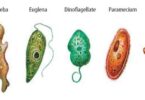
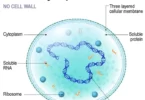
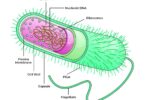
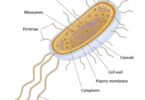
Leave a Comment